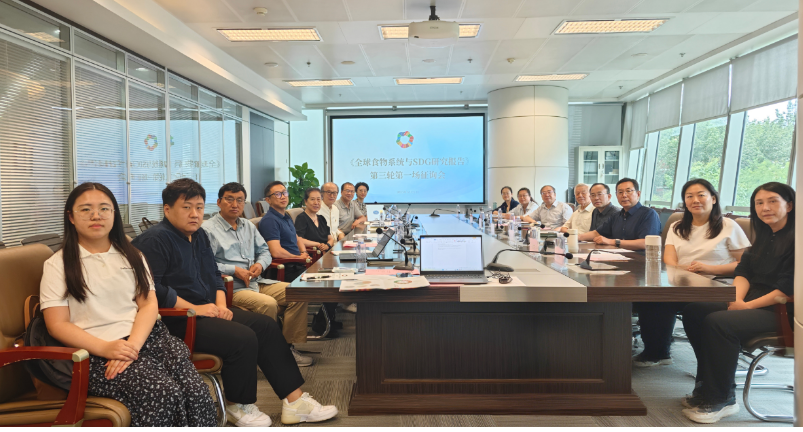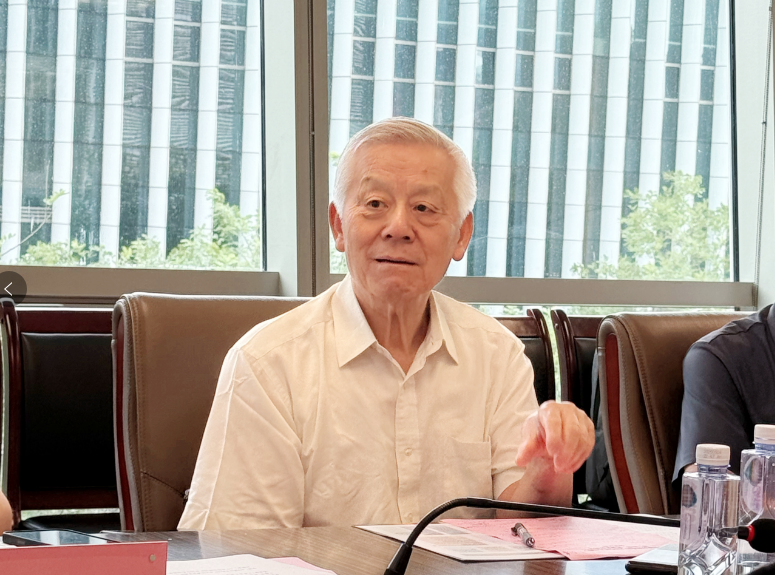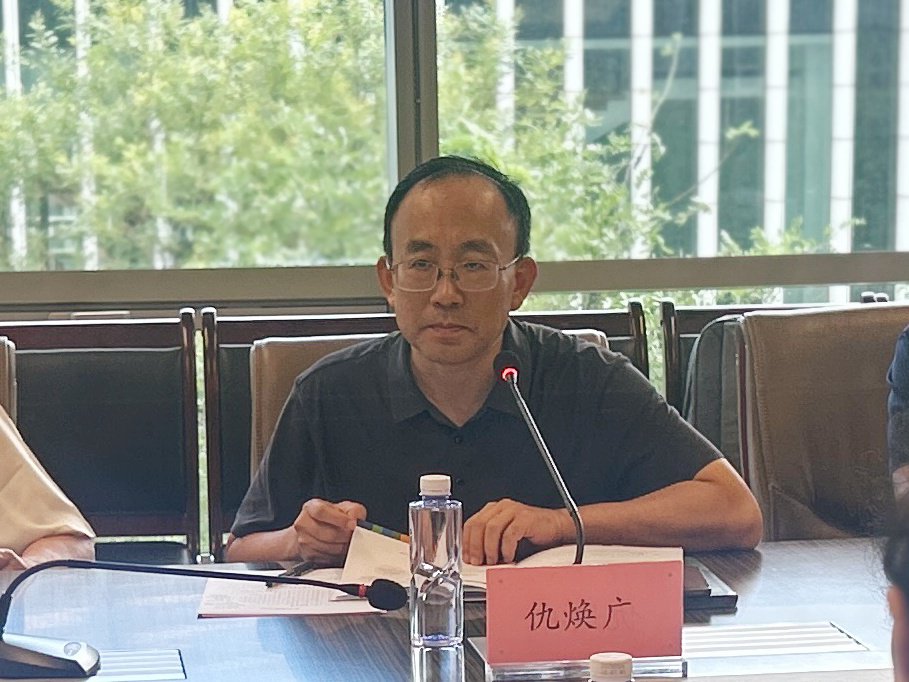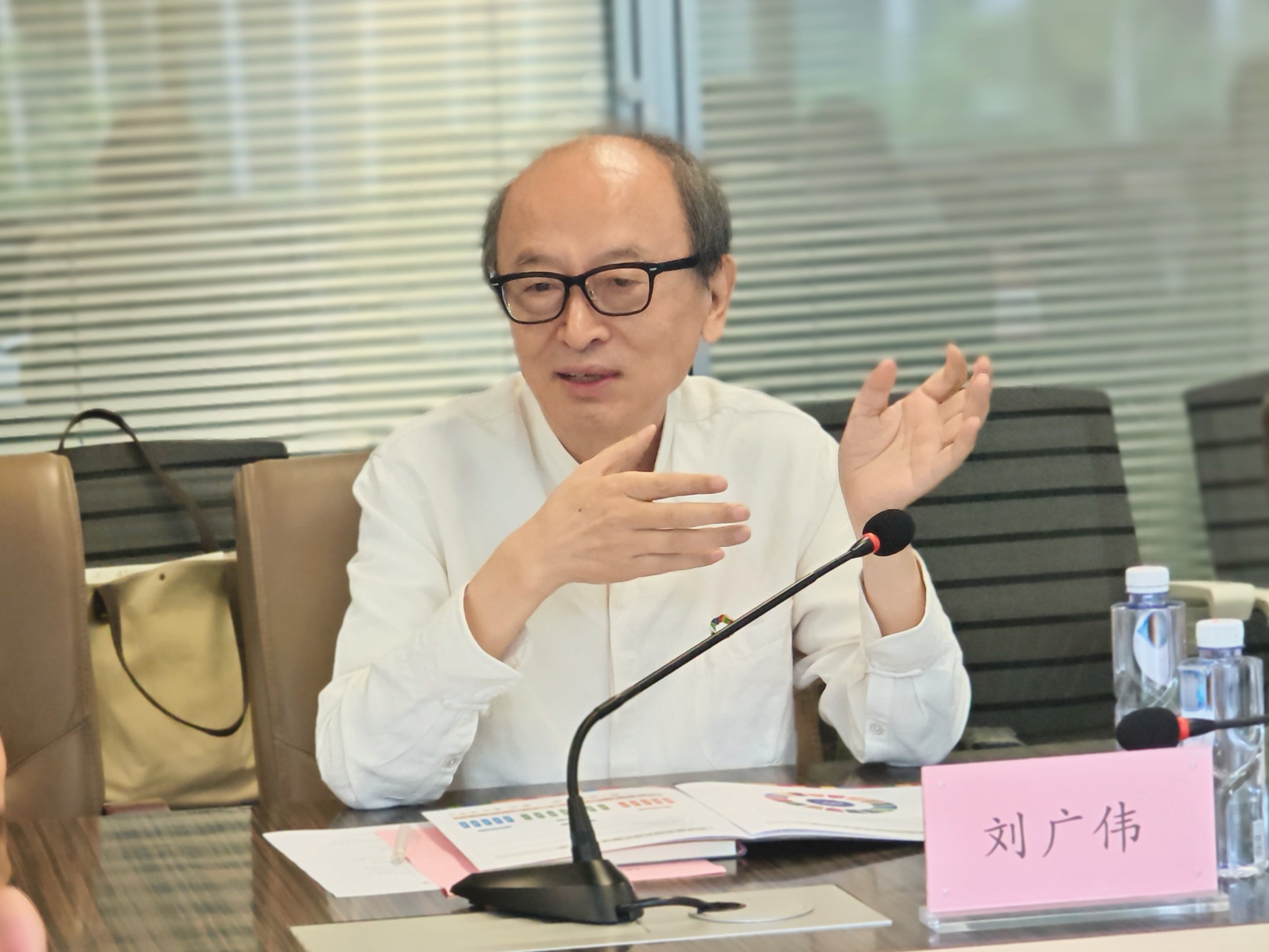On the occasion of the 80th anniversary of the United Nations, and to promote the transformation of global food systems in synergy with the UN Sustainable Development Goals (SDGs), the first consultation meeting of the third round of opinions on the Global Food Systems and SDGs Report was held in Beijing on August 20. The Report is jointly led by the Research Center for Shiology of Renmin University of China and the Secretariat of the World Shiology Forum, with contributions from scholars representing 115 countries worldwide.
This consultation session is the first of the third round, following the first and second rounds (17 sessions) of international expert consultations held from June to July 2025. Top Chinese scholars, policy experts, and industry representatives gathered to engage in in-depth discussions on the report’s scientific rigor, practical applicability, and global relevance.
The 2025 edition of the Global Food Systems and SDGs Report is themed “Problems and Responses”. Guided by the remarks of UN Secretary-General António Guterres at the 4th World Shiology Forum, and with a foreword contributed by former UN Secretary-General Ban Ki-moon, the Report aims to provide both theoretical and practical support for addressing global food system challenges. Distinguished experts from institutions such as the Chinese Academy of Engineering, Chinese Academy of Sciences, Chinese Academy of Agricultural Sciences, Renmin University of China, China Agricultural University, Liaoning University, and Beijing Normal University attended the discussion.

During the meeting, experts engaged in lively discussions on issues such as the classification and coding of global food problems, sustainable development pathways and policy recommendations, and the challenges facing China’s food system, offering a series of constructive suggestions.

Yin Weilun, Academician of the Chinese Academy of Engineering pointed out that that the first UN Food Systems Summit in September 2021 broadened the global perspective from food and agriculture to the entire food system, highlighting the need for integrated thinking on food supply, climate change, healthy diets, and science-technology partnerships. He emphasized that Shiology’s holistic approach to food system challenges has gained international attention, and its pioneering and forward-looking nature makes it a vital emerging interdisciplinary field. He proposed establishing a World Shiology Organization in China under the auspices of the Forum to foster global cooperation and strengthen China’s voice in advancing both theory and practice in this field.

Qiu Huanguang, Vice President of Liaoning University, affirmed the Report’s global significance, stressing that food-related issues are highly interconnected and cover 13 of the UN’s 17 SDGs, making them a critical lever for sustainable development. He suggested clarifying the theoretical positioning of food ecology within the framework of Shiology to enhance the Report’s academic rigor.

Liu Guangwei, Director of the Research Center for Shiology at Renmin University of China, highlighted that the Report is guided by the theoretical system of Shiology and centers on the eater. Its core focuses on “one inventory and two matches.” By systematically mapping global food system challenges, the Report develops two models: problem–country matching to identify the specific challenges faced by different countries, and problem–solution matching to provide tailored pathways to address these challenges.
Liu Yidong, the Institute for the History of Natural Sciences, Chinese Academy of Sciences, emphasized that key Shiology concepts such as shiance, eater, shi-order, and Shiology itself are foundational to building an autonomous knowledge system. They not only capture the unique systemic logic of Shiology but also affirm its subjectivity. He called for the integration of the eater-centered perspective and resource equity into the Report, and highlighted the importance of responding to challenges brought by emerging technologies such as artificial intelligence.Duan Yuquan, Researcher of the Chinese Academy of Agricultural Sciences suggested optimizing the balance among the three sections—survival, health, and sustainability—and refining expressions to further strengthen academic rigor.
The meeting unanimously agreed that China has made remarkable achievements in implementing the UN 2030 Agenda for Sustainable Development. To this end, the Global Food Systems and SDGs Report is being compiled and will invite socially responsible food enterprises to join as co-drafting institution. These enterprises are expected to showcase their practices in sustainable governance models, technological innovation, and social responsibility within food systems, thereby contributing replicable and scalable “China experiences” to global food system transformation.
Co-drafting institutions will be invited to attend the Report Launch Ceremony at the 5th World Shiology Forum this October, as well as the presentation ceremony to UN representatives.
We cordially invite your participation—let us work together to advance the transformation of global food systems and empower your brand.
Contact: Secretariat@shiology.world
Contact Person: Mr Zhang E-mail: Secretariat@shiology.world